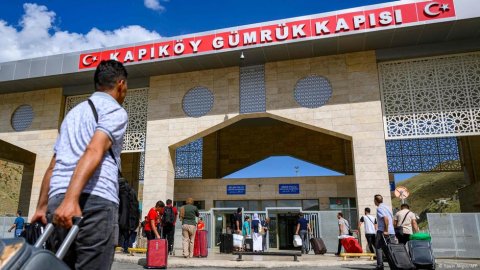Iranians Seek Refuge in Turkey Amid Escalating Conflict
As tensions rise in Iran, many citizens are making the difficult decision to leave their homes in search of safety and stability. Turkey has emerged as a primary destination for Iranians fleeing the escalating conflict. This blog post will explore the reasons behind this migration, the challenges faced by refugees, and the broader implications for immigration policies in the region.
The Current Situation in Iran
Iran is currently facing significant internal strife, driven by political dissent, economic hardship, and social unrest. The ongoing conflict has led many Iranians to seek refuge elsewhere, with Turkey being a convenient and accessible option. The Iranian government’s crackdown on dissent has made it increasingly dangerous for citizens to express their views openly. As a result, many are opting to leave their homeland in search of a better future.
Key factors contributing to this migration include:
The Journey to Turkey
The journey to Turkey is fraught with challenges. Iranians seeking refuge often face dangerous routes and the possibility of arrest. Reports of individuals being detained by authorities or falling victim to human trafficking have surfaced, highlighting the risks associated with this migration.
Many refugees arrive in Turkey with limited resources, making it difficult for them to integrate into their new environment. The Turkish government has implemented temporary protection measures for those fleeing conflict, but the support available is often inadequate. Advocates for refugees argue that more must be done to provide essential services, including housing, healthcare, and legal assistance.
Challenges Faced by Refugees in Turkey
Once in Turkey, Iranian refugees encounter a variety of challenges that hinder their ability to rebuild their lives. The following issues are particularly pressing:
1. Legal Status and Documentation
Obtaining legal status in Turkey can be challenging for many refugees. The USCIS office locator can provide information on immigration assistance, but navigating the legal system is often complex and confusing. Many refugees lack the necessary documentation to apply for work or access social services.
2. Language Barriers
Language can be a significant barrier for refugees. Many Iranians do not speak Turkish, which complicates their ability to communicate effectively and find employment. Language classes and integration programs are essential for helping refugees adapt to their new surroundings.
3. Economic Challenges
Finding stable employment is another major hurdle for Iranian refugees. Many arrive with limited financial resources, making it difficult to support themselves and their families. The Turkish job market is competitive, and refugees often face discrimination when seeking work.
4. Mental Health and Well-being
The trauma of fleeing conflict and the challenges of adjusting to a new life can have a profound impact on the mental health of refugees. Access to mental health services is crucial for their well-being, yet many refugees report difficulty in accessing these resources.
The Role of International Organizations
International organizations play a critical role in providing support to Iranian refugees in Turkey. Initiatives by the United Nations High Commissioner for Refugees (UNHCR) and various non-governmental organizations (NGOs) aim to facilitate the integration of refugees and advocate for their rights. These organizations offer essential services such as legal assistance, education, and healthcare.
In addition, there are ongoing discussions regarding immigration reform in various countries, including the United States. Keeping track of advance parole news and other immigration policies is essential for understanding the broader context of refugee movements and the rights of displaced individuals.
Conclusion
As the conflict in Iran continues to escalate, the number of Iranians seeking refuge in Turkey is likely to rise. The challenges faced by these refugees are significant, but with the support of international organizations and advocacy for fair immigration policies, there is hope for a brighter future.
The situation highlights the importance of addressing the root causes of migration and ensuring that those in need receive the protection and support they deserve. Keeping abreast of immigration news in Colorado and other regions can provide valuable insights into how different areas are responding to the ongoing refugee crisis.
In conclusion, the plight of Iranian refugees in Turkey serves as a reminder of the human cost of conflict and the urgent need for comprehensive immigration solutions. The global community must come together to support those fleeing violence and persecution, ensuring that their rights are upheld and their voices are heard.










